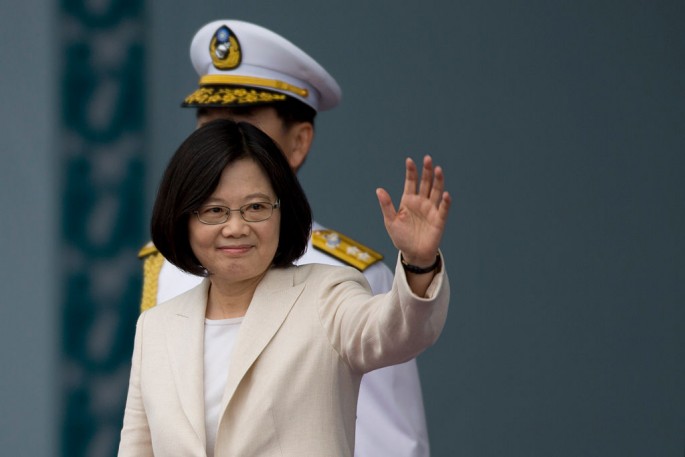Taiwanese President Tsai Ing-wen believes that the island should focus more on issues at home, especially ones concerning the economy, instead of the threats from mainland China.
According to The Wall Street Journal, Taiwan's new president is on track when she focused on the problems of the island, particularly on overregulation, lack of free-trade agreements, and balancing of the country's budget.
The outlet also noted how Tsai's inauguration speech was disappointing in terms of cross-Strait relation issues, something that most onlookers are waiting for.
Taiwan's Struggles at Home
"The path forward is not a smooth one," Tsai said during her inauguration based on the full text of her speech posted on Focus Taiwan. "Taiwan needs a new government that readily takes on each and every challenge. And it is my job to lead such a government."
In her speech, Tsai pointed out the possibility of bankruptcy on the island's pension system, the rigid educational system, and the country's slow economic growth, something that she would like to change through "a new model for economic development."
She also noted how the younger generations are experiencing difficulties in launching their own careers due to the low wages in the island.
A report from Reuters posted on the Business Insider interviewed one of these young workers named Jason Tsai whose life reflected many others'.
According to the report, Tsai earns a monthly average income of T$15,000 or $455, which is below the minimum wage for college graduates like him.
The 25-year-old Taiwanese admitted that because he is not earning enough, he cannot even afford to live in his own home.
Tsai's plight is the same as many others as the country faces an aging working population which, in turn, resulted in an economic slowdown.
Tsai's Plans
In order to solve these problems, Tsai said she wants to implement better economic structures, a strengthened social safety net, and fairness and justice in the Taiwanese society.
In Tsai's speech, she also mentioned her plans on conducting dialogues to become a "proactive communicator for peace."
By doing this, she intends to satisfy the change the Taiwanese people are craving for while balancing the island's participation in global peace and security.
"We will establish mechanisms for intensive and routine communications with all parties involved, and exchange views at all times to prevent misjudgment, establish mutual trust, and effectively resolve disputes," she said.
While WSJ lauded her focus on the welfare of the people, the outlet appears to be dissatisfied with her plans for the cross-Strait relations which can play a major role in the bigger picture: maintaining global peace and stability.



























